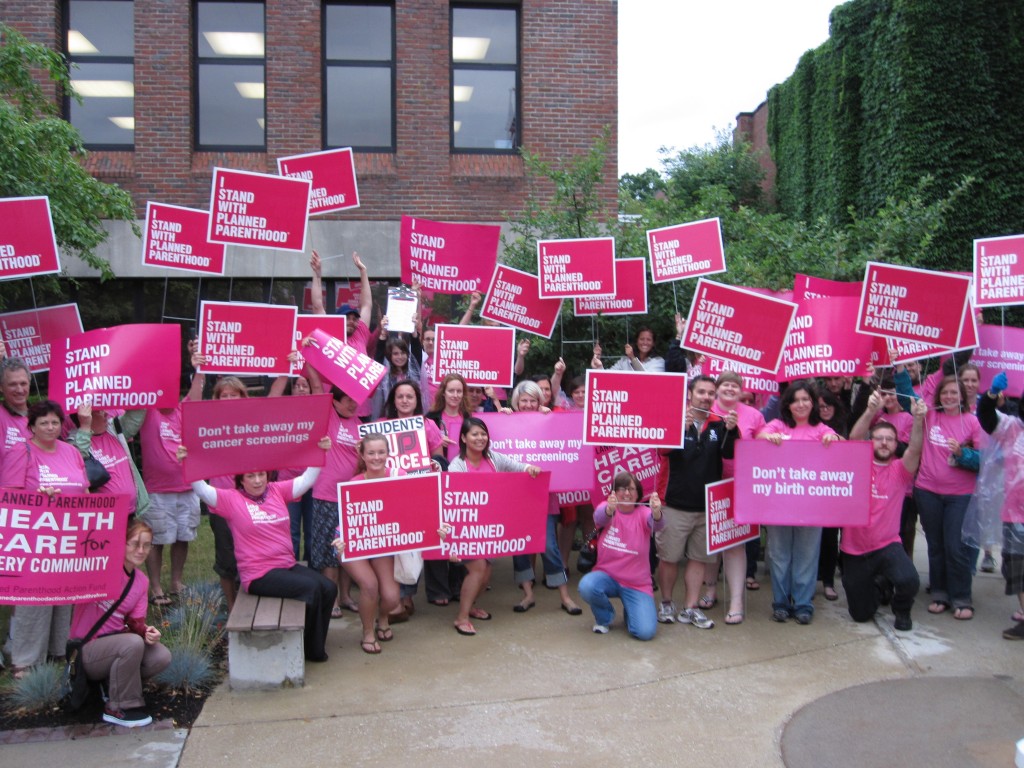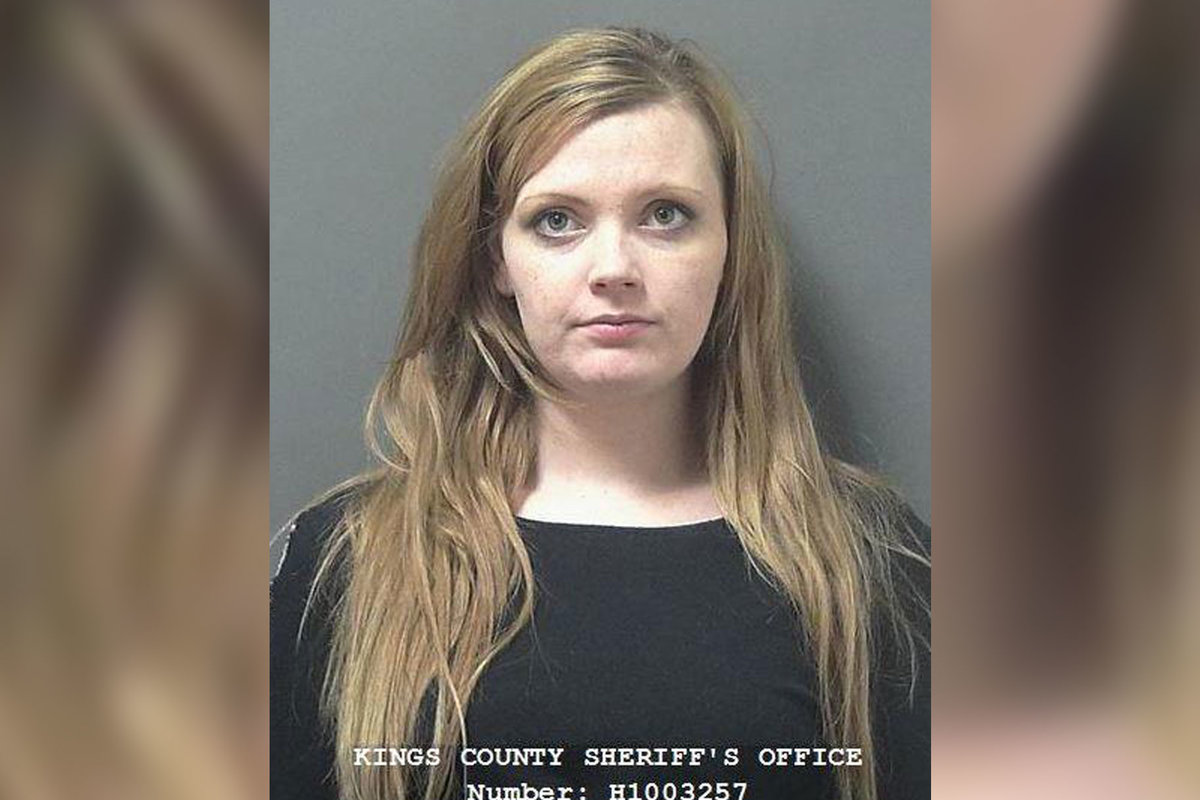

CONCORD, NH – As the issue of abortion rights continues to make headlines around the country, the rise of so-called “fetal harm” laws comes as no surprise to Planned Parenthood of Northern New England (PPNNE) which said it’s something women’s rights advocates have “seen coming.” While New Hampshire does not have as many broad protections as other states in New England, PPNNE has nevertheless seen an influx of patients from across the nation coming to seek services.

“Planned Parenthood of Northern New England is already seeing the impact of this Supreme Court decision,” Sara Persechino, a grassroots activist who serves as campaigns and communications director for Planned Parenthood said. “In the last three weeks, PPNNE has scheduled or has already seen patients seeking abortion care from states where abortion has been banned or deeply restricted: Tennessee, Louisiana, South Dakota, Ohio, and Texas. PPNNE has also seen patients from nearby states where abortion is legal, but appointments are taking longer due to the domino effect of states restricting abortion access and people being forced to travel farther for the care they need.”
Persechino continued, “Additionally, PPNNE has seen a 100 percent increase in appointment requests for LARCs (long-acting reversible contraception like IUDs) since the Dobbs decision as well as an increase in vasectomy inquiries, which are only available at our Burlington, Vermont, location.”
In February of 2022, the New Hampshire State Senate introduced SB 436, or the Access to Abortion Care Act. This bill was sponsored by 15 Democrats, and was not written with any consideration of pending or completed cases in the Supreme Court. It failed to become law.
Nevertheless, both state and federal officials seek to codify Roe v. Wade into law. On July 11, President Biden signed an executive order aimed at “Protecting Access to Reproductive Health Care Services.” These include protecting access to safe and reliable reproductive health care, as well as ensuring the privacy for all patients who seek such services.
At the end of June, calls to use federal land to set up abortion clinics were rejected by the Biden administration. Providers would potentially operate in violation of state law, opening themselves up for potential prosecution. President Biden has thus far declined using his power unilaterally to overrule state law and impose the will of the federal government on legislatures who may be unwilling.
Instead, he has launched a Reproductive Rights Task Force as part of the Federal Justice Department “aimed at preventing overreach from state and local governments.”

Senator Maggie Hassan has taken to Twitter to give her vocal support to the cause of Reproductive Rights. On July 15, she tweeted, “A world after Roe is a scary one for women and health care providers. But we can’t back down from the fight. And we won’t. I will always stand to protect a woman’s fundamental right to control her own destiny.”
The issue, now settled in the Supreme Court, has come to rest with state and federal legislators.
“In New Hampshire,” Persechino said, “abortion remains safe and legal before 24 weeks – for now. But without federal constitutional protections for abortion rights, who we elect to state and federal office has never been more important.”

How We Got Here
In 2018, the state of Mississippi passed the Gestational Age Act into law, limiting abortion up to 15 weeks except in cases of “medical emergency or severe fetal abnormality.” The Act came as a result of Mississippi House Bill 1510 which was sponsored by 16 Republican state representatives and was signed by Republican governor Phil Bryant a scant two months after its passage.
The Gestational Age Act operates in contravention to the framework set down by the Supreme Court in the 1992 case Planned Parenthood v. Casey. In that case, the court decided upon a viability analysis of a fetus for abortion, rather than a trimester framework, as developed in Roe v. Wade. The 2018 Mississippi law operates within this framework, suggesting that abortions could be performed within the first trimester of pregnancy, or roughly three months. The viability analysis held limited abortions up to 24 weeks, close to the end of the second trimester.

In Mississippi, the last remaining abortion had been Jackson Women’s Health Organization (JWHO) – prior to its closure in early July 2022. Governor Bryant, among others in the state of Mississippi, had long since sought the closure of JWHO, dating back to 2012 when a law was passed which would require doctors in the facility to have admitting privileges at a local hospital in order to continue their practice. Doctors who gained such privileges would be able to admit their patients directly into a local hospital without having to refer them to the emergency room first.
The Supreme Court struck down two such laws in other states as being unconstitutional: in 2016, a Texas state law had been declared such in the Whole Women’s Health v. Hellerstadt case. In 2020, a Louisiana state law had been declared such in the June Medical Services, LLC v. Russo case. Justices in both cases found the laws presented an undue burden on women seeking abortions, a right declared as constitutional in Roe v. Wade based on an interpretation of the Fourteenth Amendment.
As of 2015, the Guardian reported nearly two-thirds of women seeking abortion in the state of Mississippi traveled out of state to obtain one. This disproportionately affected women of low-income status, who may have had not the resources to seek such a procedure out of state. Additionally, doctors at the JWHO facility also traveled from out of state, flying back and forth regularly to see their patients.
Following the passage of the Gestational Age Act, the JWHO facility sued Thomas Dobbs, a Health Officer for the Mississippi Department of Health. Sovereign Immunity laws prevented the state itself from being sued. After the case was resolved and Roe reversed, Dobbs claimed he “had nothing do with it.”
Lower courts in Mississippi prevented enforcement of the law with preliminary injunctions. The rationale given at the time dealt with privacy concerns over a woman’s right to seek an abortion, again citing the Fourteenth Amendment.
Up until that point, the Supreme Court had generally followed the doctrine of stare decisis. Anyone who did this used prior case precedent to inform decisions involving new cases brought before any court. Stare decisis can ensure that a court does not make rulings based on personal interpretations and opinions, which may vary depending on the judge or judges involved in crafting such a ruling. Going against prior precedent does not happen often in the Supreme Court; the only example of this occurring is the Brown v. Board of Education decision overturning the precedent decided in Plessy v. Ferguson.
The court took a different turn following the refusal of Senate Republicans to hear nominations for potential Supreme Court Justice Merrick Garland, who was nominated by President Obama. Garland’s nomination lasted 293 days. Upon the election of President Trump, the Senate confirmed Neil Gorsuch, who had previously been nominated by George W. Bush for the United States Court of Appeals for the Tenth Circuit in 2006.
President Trump then appointed Amy Coney Barrett to succeed Ruth Bader Ginsberg, who passed away while serving on the Supreme Court, as well as Brett Kavanaugh, who succeeded a retiring Anthony Kennedy. Justice Kennedy was among those who wrote the plurality opinion for Planned Parenthood v. Casey.
It was this conservative court which accepted a certiorari request from the Mississippi Court, brought about by the state of Mississippi itself. A certiorari petition is a request from a lower court asking a higher court to review a previous decision. Although the state of Mississippi had attempted a variety of ways to ban abortion on a de facto basis, it had not done so on a de jure basis- no law yet existed banning abortion outright in that state.
Strictly speaking, the Dobbs case had nothing whatsoever to do with whether the state had any legal right to ban abortion or whether the court should reconsider prior precedent regarding Roe. If the appeal did succeed, the court would certainly have overturned the standards and doctrine developed in Casey.

What followed has since become public knowledge. The Supreme Court voted to overturn both Casey and Roe, stating an abortion is not a constitutionally protected right. The Jackson Women’s Health Organization closed shortly thereafter, leaving women in the state of Mississippi with nowhere to go inside their own state in the event of a medically necessary termination of pregnancy – such as an ectopic pregnancy, or other condition wherein the life of the mother is at risk.
While the Court had defended its previous decisions through stare decisis in the past, the Dobbs ruling served as a signal that it would no longer do so. State governments were free to make their own laws and restrictions regarding abortions and abortion clinics, many of which provide a variety of health services other than abortion itself.
Among these is the case of Chelsea Becker, who was charged in 2019 with murder in the state of California after her pregnancy ended in stillbirth. In order to prove their case, prosecutors in the state of California would have to provide evidence demonstrating that Becker deliberately acted in such a way as to produce a stillborn child. According to NPR, the prosecution attributed her stillbirth to her use of methamphetamine during pregnancy. California’s primary murder law makes it a crime to kill a fetus in many circumstances, mothers are explicitly exempted from prosecution. Becker’s case was dismissed in May of 2021 but not before she spent 16 months in county jail, because she couldn’t afford to make the $5 million bail.
Fetal harm laws in various states view a fetus and a mother as two separate entities. A miscarriage or a stillbirth could be seen, from a legal point of view, as deliberate neglect or willful harm. Proving such a case for those who dare to challenge a prosecutor’s assertions, rather than just taking a plea deal, would very likely involve an invasion of personal and medical privacy. While cases of this kind are on the rise across the nation, there is no clear evidence that harm is being prevented or pregnancies are any more healthy now than before such laws were passed.







